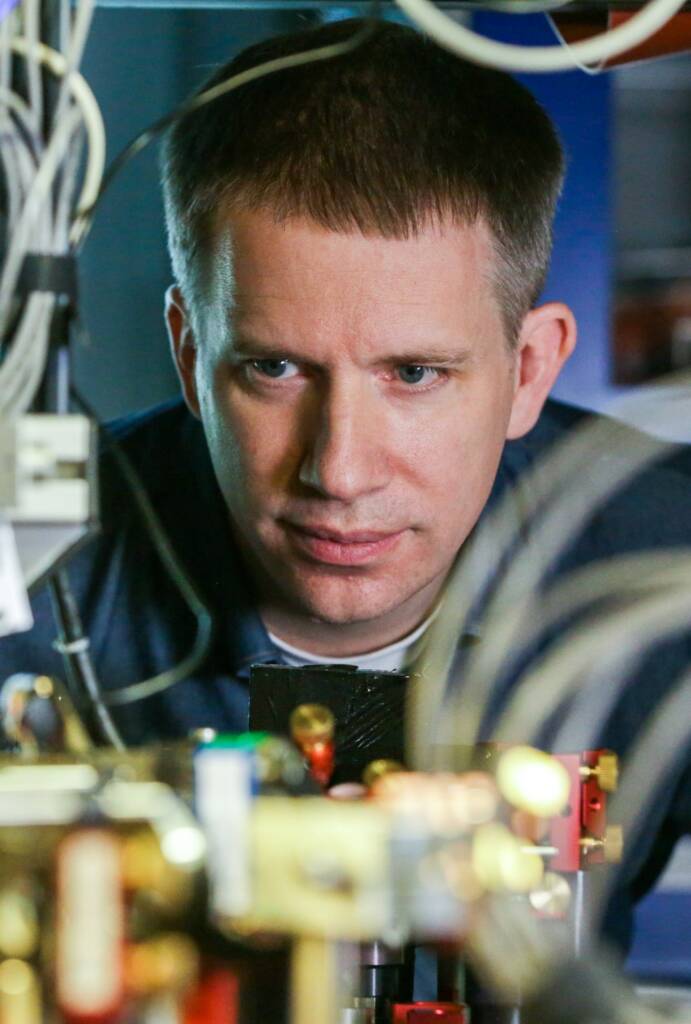Arno Rauschenbeutel
Generation of correlated photons using non-interacting atoms weakly coupled to a guided optical mode


Date & heure
06/11/2019
Lieu
Sorbonne université – Campus jussieu – 4, place jussieu – 75005 Paris – 13th november at 13h45, room : T44/54 107 1er floor
Accueil
Typical schemes for generating correlated states of light require a highly nonlinear medium that is strongly coupled to an optical mode. However, unavoidable dissipative processes, which cause photon loss and blur nonlinear quantum effects, often impede such methods. In this seminar, I will report on a recent experimental demonstration of the opposite approach [1]. Using a strongly dissipative, weakly coupled medium, we generate and study strongly correlated states of light. Specifically, we study the transmission of resonant light through an ensemble of non-interacting atoms that weakly couple to a guided optical mode. Dissipation removes uncorrelated photons while preferentially transmitting highly correlated photons created through collectively enhanced nonlinear interactions. As a result, the transmitted light constitutes a strongly correlated many-body state of light, revealed in the second-order correlation function. The latter exhibits strong antibunching or bunching, depending on the optical depth of the atomic ensemble. The demonstrated mechanism opens a new avenue for generating nonclassical states of light and for exploring correlations of photons in non-equilibrium systems using a mix of nonlinear and dissipative processes. Furthermore, our scheme may turn out transformational in quantum information science. For example, it offers a fundamentally new approach to realizing single photon sources, which may outperform sources based on single quantum emitters with comparable coupling strength.
